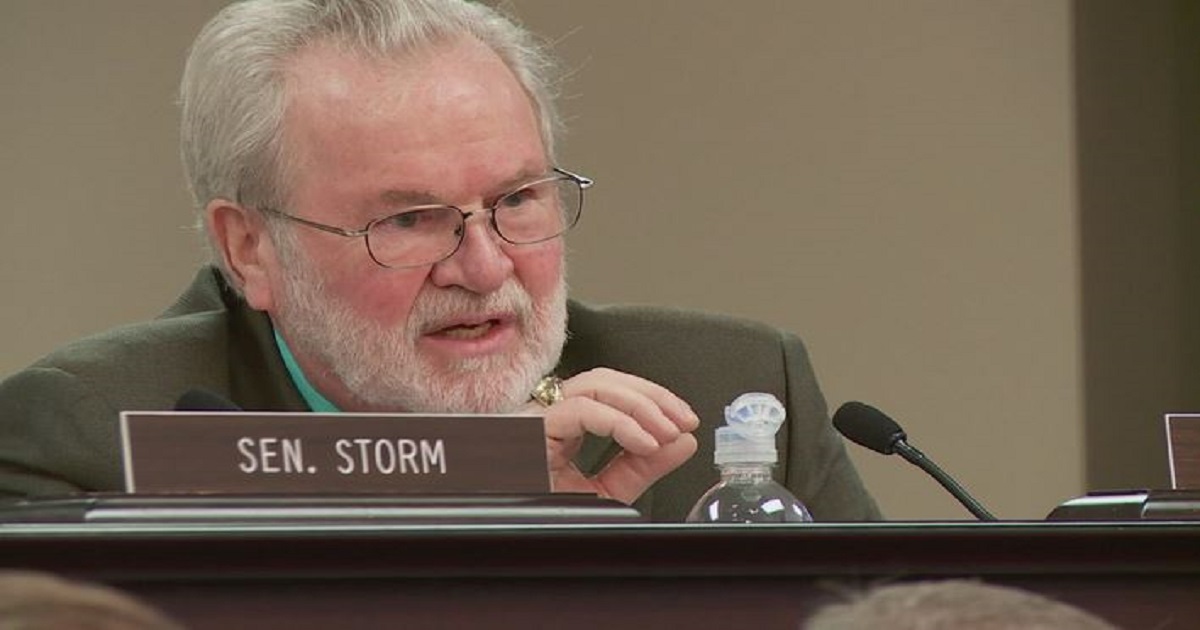Kentucky state Senator Johnnie Turner, a well-respected figure in his Appalachian district, has tragically passed away following a freak accident at his home. Turner, who was a passionate advocate for the coal industry and the people of eastern Kentucky, was severely injured after falling into an empty swimming pool while riding a lawn mower. He was 76.
Who Was Johnnie Turner? A Look Into His Life and Legacy
Johnnie Turner, a Republican from Harlan County, was known for his deep connection to his constituents and his unwavering support for the coal industry, which has long been the backbone of eastern Kentucky’s economy. A U.S. Army veteran and lawyer, Turner’s dedication to public service spanned decades, including his time in the Kentucky House of Representatives from 1999 to 2002 and more recently, in the state Senate, where he was elected in 2020.
Turner’s career was marked by his commitment to the people of Kentucky, especially those in his Appalachian district. His folksy demeanor and approachable nature endeared him to both his colleagues and constituents, as evidenced by the outpouring of tributes following his death.
How Did Johnnie Turner Die?
The accident occurred last month at Turner’s home when he drove a lawn mower into an empty swimming pool. The injuries sustained in the fall were severe, and despite his best efforts, Turner succumbed to those injuries on Tuesday evening. Kentucky Senate President Robert Stivers described the tragedy as the culmination of a “hard-fought battle” with the injuries he sustained.
“Johnnie spent his life lifting others,” Stivers said in a statement. “His commitment to the people of eastern Kentucky was unwavering.”
Turner’s Impact on Eastern Kentucky

Johnnie Turner’s influence extended far beyond his role as a state senator. Known for his staunch advocacy of the coal industry, Turner fought tirelessly to keep coal jobs alive, even as the industry faced mounting pressure from both environmental regulations and the rise of natural gas.
In an interview with WYMT earlier this year, Turner expressed his frustration over what he perceived as the government’s attempt to dismantle the coal industry in Kentucky, stating, “This government trying to kill the coal industry—it ain’t going to happen in Kentucky. It just ain’t going to happen.”
His stance on coal and other industries was more than just rhetoric. Turner was known for showing up when his constituents needed him most, often leading by example. U.S. Senate Republican Leader Mitch McConnell recalled a moment after severe flooding in eastern Kentucky when Turner personally assisted with cleanup efforts, arriving with equipment from his own home. “That’s just who he was: a good man who loved the mountains and its people,” McConnell remarked.
Expanding Beyond His District: Johnnie Turner’s Influence on Statewide Legislation
While Turner’s primary focus was his Appalachian district, he also demonstrated a willingness to support initiatives that benefitted the entire state of Kentucky. Kentucky Senate Majority Floor Leader Damon Thayer praised Turner for his open-minded approach to governance, noting his support for high-stakes horse racing legislation despite representing a socially conservative district.
The bill in question secured the legal status of wagering on historical horse racing machines, a key revenue source for Kentucky racetracks. Turner’s support of this measure demonstrated his ability to balance the interests of his district with those of the state at large. Thayer noted, “He saw what happened to the coal industry in eastern Kentucky and didn’t want to see another leading industry—like horse racing—suffer the same fate.”
Turner’s Final Days: What Happens to His Senate Seat?
Turner’s death comes at a critical time, as Kentucky prepares for the upcoming election. Despite his passing, his name will remain on the general election ballot as the Republican candidate for his state Senate seat. With his lone challenger having recently withdrawn from the race, the secretary of state’s office has confirmed that write-in candidates have until Friday to file for the seat. If no write-in candidate emerges, a special election may be required to fill Turner’s position.
As the GOP-dominated Kentucky legislature gears up for its 2025 session, Turner’s absence will undoubtedly be felt. His colleagues have spoken openly about the loss of a man who, in their words, “was a fierce advocate for the mountains and its people.”
Remembering Johnnie Turner: Tributes From Colleagues and Friends
Turner’s colleagues in the Kentucky legislature were quick to honor his legacy following his death. House Speaker David Osborne described Turner as an “ardent champion and passionate voice for eastern Kentucky.”
Turner’s passing has left a void not only in Kentucky politics but in the hearts of those who knew him. As the state mourns his loss, many have reflected on the lasting impact of his life and career. “We are saddened by his loss, but know that his legacy will live on in those he helped,” Osborne said.
Frequently Asked Questions (FAQ)
What caused Johnnie Turner’s death?
Johnnie Turner died from injuries sustained in an accident at his home when he fell into an empty swimming pool while riding a lawn mower.
What was Johnnie Turner known for?
Turner was known for his strong support of the coal industry and his commitment to representing the people of eastern Kentucky. He also backed measures that benefited the entire state, including horse racing legislation.
How long did Johnnie Turner serve in the Kentucky legislature?
Turner served in the Kentucky House of Representatives from 1999 to 2002, and later in the state Senate after winning election in 2020.
Will a special election be held to replace Johnnie Turner?
With Turner’s passing so close to the election, his name will remain on the ballot. A special election may be needed if no write-in candidate files to run.
What are Johnnie Turner’s most notable achievements?
Turner’s legacy includes his steadfast defense of the coal industry and his ability to support statewide initiatives, such as horse racing, while remaining loyal to the needs of his Appalachian district.









